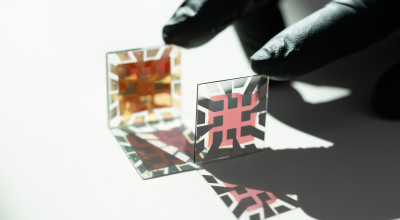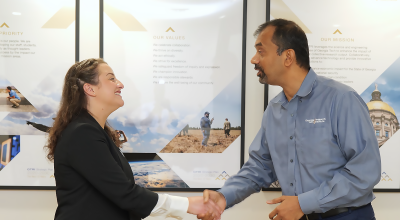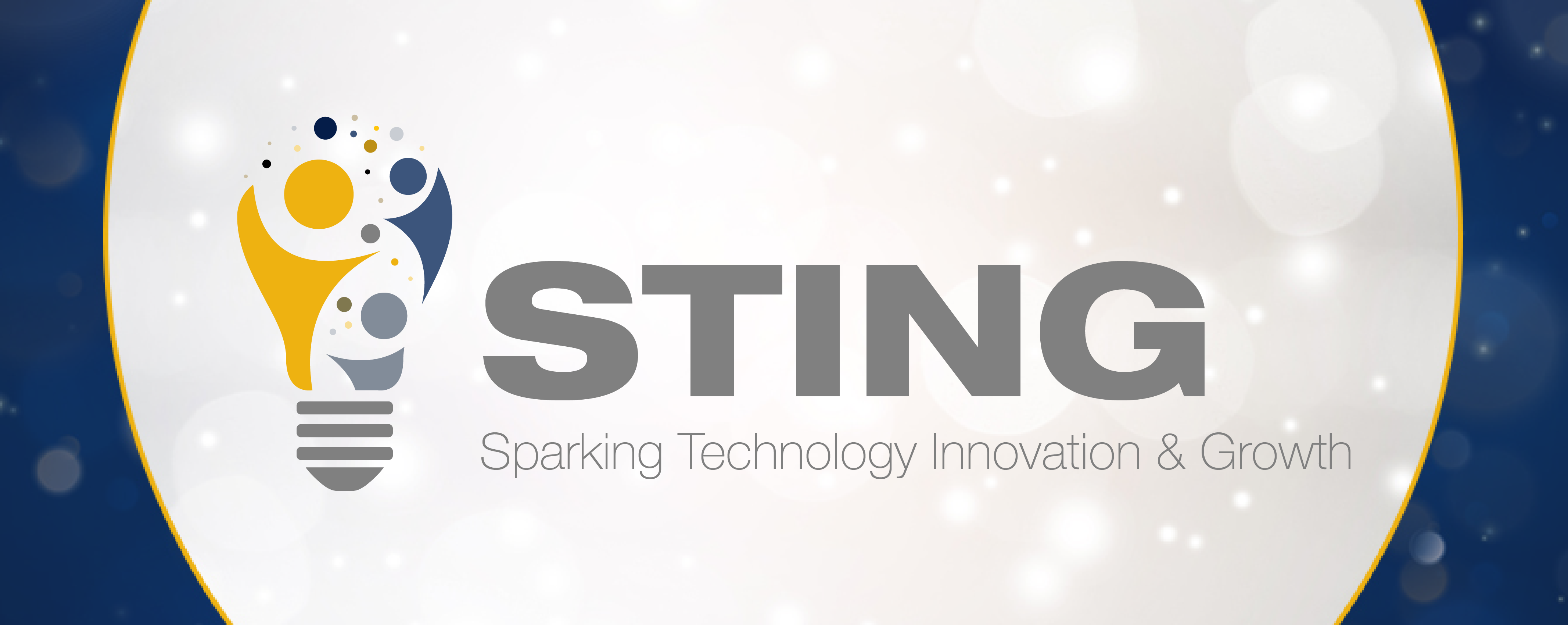
Creative inventions — from microwaves to superglue — simplify complicated tasks, making our lives easier and improving our communities. However, that’s only true if the invention addresses a problem that actually exists.
Unfortunately, not understanding the market’s needs is a problem many innovators face — it’s related to the number one reason startups fail, according to a report by CB Insights, a company that collates and analyzes terabytes of market data. Furthermore, in a study of venture-backed businesses that raised more than $1 million from 2004 to 2010, a Harvard Business School lecturer found that 75% of all venture-backed startups eventually fail, according to GeekWire.
To spur innovation that leaves a lasting impact, STING, a professional development program within the Georgia Tech Research Institute (GTRI), challenges junior-level researchers to rethink how they innovate while also helping them discover and meet our sponsors’ actual needs.
Embracing innovation and thought leadership is core to GTRI, but it must be coupled with careful planning and a thorough customer discovery process.
Re-innovating Innovation
GTRI STING, which stands for Sparking Technology Innovation and Growth, is a 10-week program in which junior-level GTRI researchers are placed in teams and paired up with more experienced GTRI researchers who serve as mentors in the program.
Members of the Georgia Institute of Technology’s (Georgia Tech) Venture Lab help provide a crash course in Lean Startup methodology, emphasizing customer discovery in product creation. Author Eric Ries wrote about this methodology in his book, The Lean Startup: How Today’s Entrepreneurs Use Continuous Innovation to Create Radically Successful Business. GTRI STING program administrators have used Ries’ book as an inspiration.
“The vast majority of researchers who are going to work here are going to have to interact with a customer at some point and be working on a problem,” said GTRI Recruiting Consultant Camille Shaffer, who is also a STING program administrator. “So this program is basically teaching them how to do customer discovery and how to get at what the actual problem is for [the customer].”
At the end of the 10 weeks, researchers compete in a pitch event, where a panel of sponsors selects a winner. Sometimes the solutions GTRI researchers create turn into larger projects and future partnerships. For example, one team’s pitch in 2020 transitioned into a $250,000 sponsored project for developing a flight data management tool. Another 2020 pitch became a project funded through one of GTRI’s internal research and development (R&D) programs.
This year’s STING cohort features 20 GTRI researchers divided into five teams, each with a GTRI mentor. Program administrators provide communication tips as participants set up interviews with stakeholders to better understand the problems.
The industry and government challenges they are taking on include predictive maintenance of United Parcel Service (UPS) trucks, implementing an automated inventory solution for Chick-fil-A, and creating a universal controller to replace the three that the 75th Ranger Regiment currently uses for their unmanned vehicles, among others.
“[The STING program has] got a real energy to it that I enjoy,” Shaffer said.
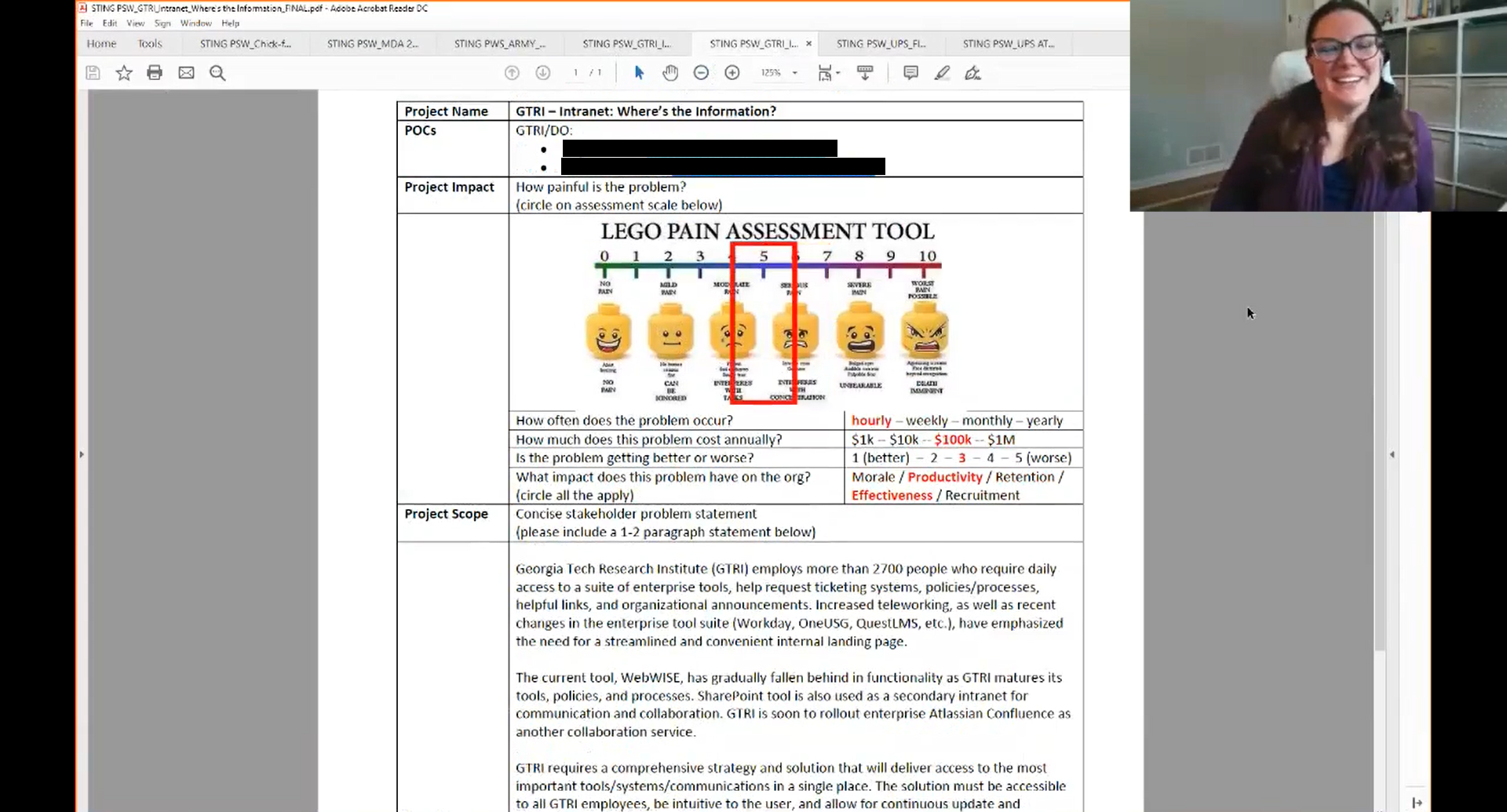
Methodology in Action
During the GTRI STING kickoff event held in early February, program administrators shared personal stories to demonstrate the Lean startup methodology in action.
GTRI Senior Research Scientist Shane Owens was part of a team tasked with developing a Personal Health Record for breast cancer patients. On its surface, the project seemed simple. However, after going through the stakeholder discovery process, the team learned that the patients felt overwhelmed with receiving multiple pieces of information from healthcare providers. The Personal Health Record would only add to that overwhelming feeling.
“What they needed was something that helped them feel more in control of their life and feel less overwhelmed,” Owens said. “We developed a solution that brought all of the information and resources they had been given onto a small tablet that they could carry around with them in their purse. That way, they always had those resources available to them whenever they were ready to look at it without having to search all over the house looking for where they had put some pamphlet they had been given.”
Sara Henderson, a program director at Georgia Tech’s Venture Lab, has a breadth of experience applying customer-centric methods to help pivot projects towards real versus perceived problems. An example of this, which she shared during the kickoff, occurred when she worked for Porsche. Her team was tasked with understanding why a newly implemented software was not resolving problems with the procurement processes.
Henderson’s team conducted a set of workshops with Porsche employees who used the procurement process and discovered that the infrequency with which they engaged with the steps was the underlying cause for why the process appeared so convoluted and overcomplicated. Ultimately, centralizing the task with a few well-trained employees resulted in a more efficient execution of the process and utilization of the newly implemented software.
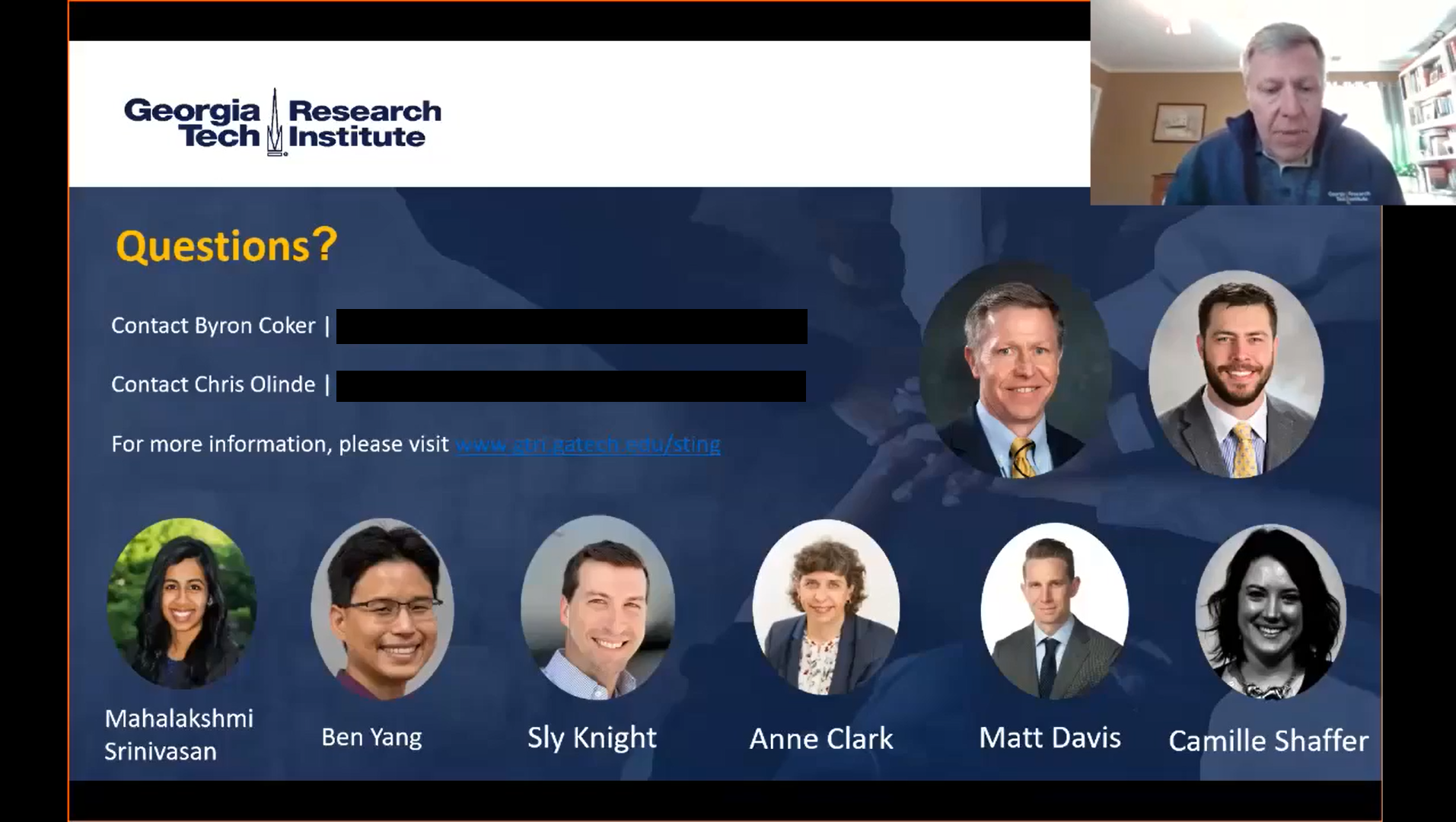
Ready, Set, Go!
GTRI STING is no small commitment. This year’s participants are required to conduct no less than six customer discovery interviews each week to deeply understand the sponsor’s problem and form the best pitches. The final STING pitch event takes place on April 23, where the five teams will compete for the panelists’ bid — and potentially, a funded project.
GTRI STING mentors and program administrators hope to model Lean Startup methodology for junior researchers and inspire them to innovate with purpose and set themselves up for a successful career.

Writer: Kaitlyn Lewis


